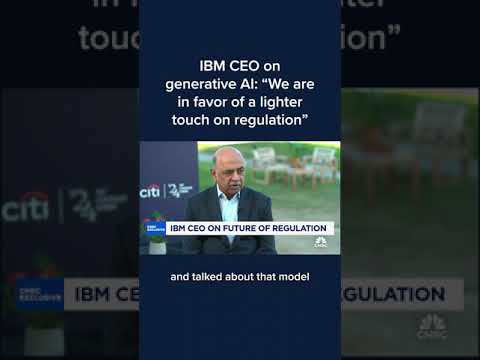The IBM CEO discussed the need for a balanced approach to generative AI regulation, advocating for a “lighter touch” to encourage innovation while ensuring accountability among developers. He emphasized that while some stricter regulations may be necessary for extreme use cases, overall, the regulatory environment should remain flexible to foster technological advancement.
In a recent discussion, the CEO of IBM addressed the topic of generative AI regulation, emphasizing the need for a balanced approach. He noted that while there has been limited regulation in the field so far, the political landscape is shifting, particularly with the incoming president-elect promising to overturn existing executive orders related to AI from the Biden Administration. This change could significantly impact how AI is developed and regulated in the future.
The CEO expressed IBM’s commitment to responsible AI practices, highlighting the importance of accountability among model developers. He stressed that innovation should be encouraged in an open environment rather than being stifled by overly stringent regulations. This perspective aligns with IBM’s broader vision of fostering technological advancement while ensuring ethical considerations are met.
One of the key points raised was the potential requirement for third-party assessments of AI systems, as suggested in some executive orders. The CEO argued that such assessments could introduce unnecessary friction in the early stages of AI development. He believes that while accountability is crucial, imposing third-party evaluations could hinder progress and innovation in a rapidly evolving field.
The CEO advocated for a “lighter touch” on regulation, suggesting that it is essential to avoid overregulation that could stifle creativity and growth in AI technologies. He acknowledged that there are certain extreme use cases, particularly those involving life and death situations, where stricter regulations may be warranted. However, he maintained that the general approach to AI regulation should be more flexible to allow for innovation.
In conclusion, the IBM CEO’s remarks reflect a desire for a regulatory environment that balances accountability with the need for innovation in generative AI. He called for a thoughtful approach that avoids excessive constraints while still addressing the ethical implications of AI technologies, particularly in high-stakes scenarios. This perspective highlights the ongoing debate about how best to regulate emerging technologies in a way that promotes both safety and innovation.
